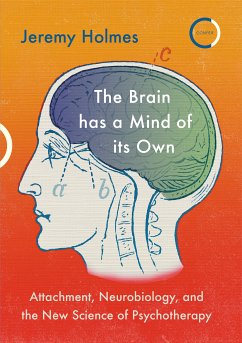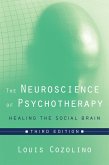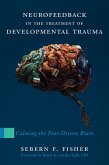Describing the neuroscientific basis for effective psychotherapy, Professor Holmes draws on the Free Energy Principle, which holds that, through 'active inference' -- agency and model revision -- the brain minimises discrepancies between incoming experience and its pre-existing picture of the world. Difficulties with these processes underlie clients' need for psychotherapeutic help. Based on his relational 'borrowed brain' model, and deploying his capacity to communicate complex ideas to a wide audience, Holmes shows us how the 'talking cure' reinstates active inference and thus how therapy helps bring about change.
Dieser Download kann aus rechtlichen Gründen nur mit Rechnungsadresse in A, B, BG, CY, CZ, D, DK, EW, E, FIN, F, GR, H, IRL, I, LT, L, LR, M, NL, PL, P, R, S, SLO, SK ausgeliefert werden.









